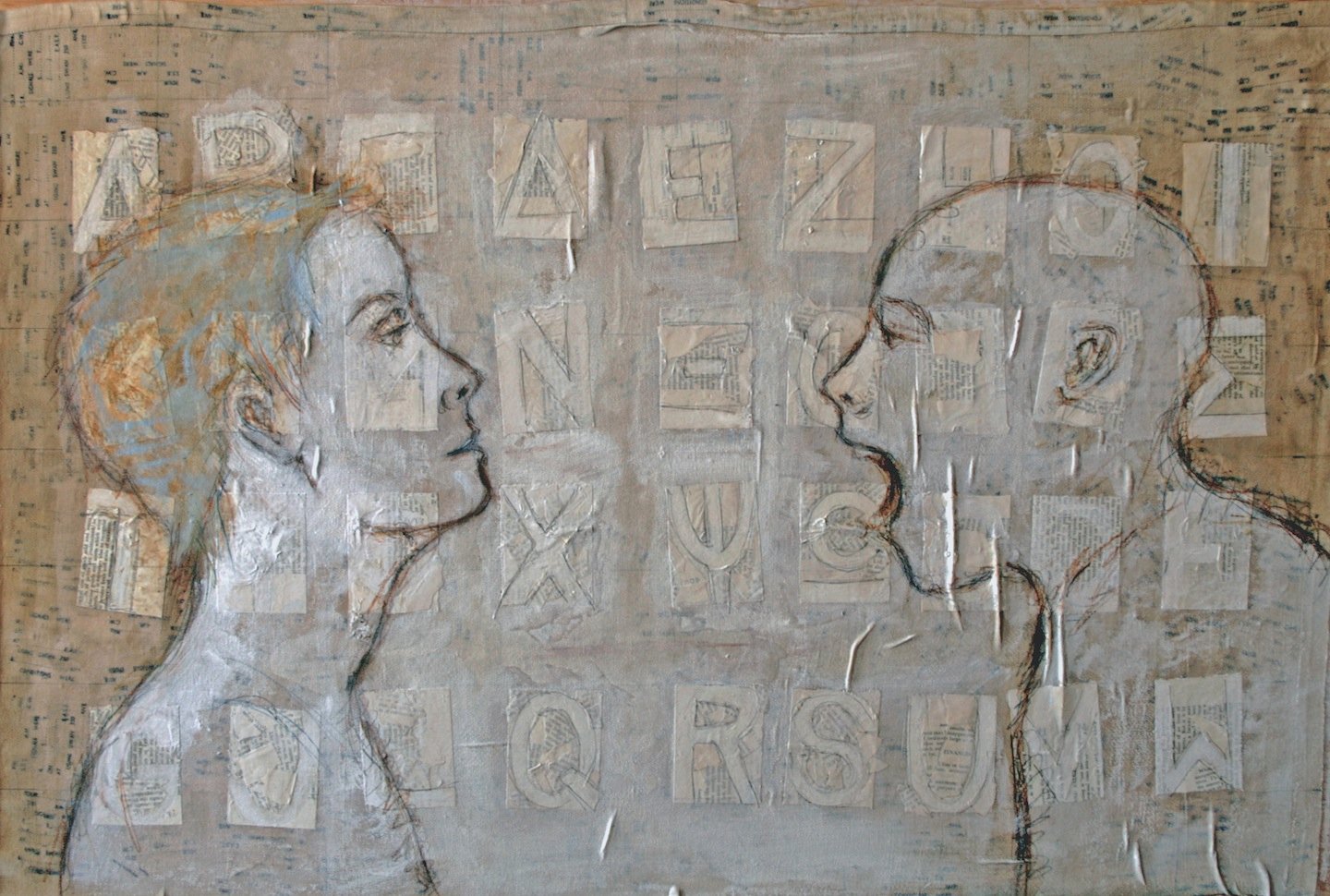
Take a look around. The world seems pretty orderly right? Your computer has not exploded, your chair has not collapsed, the trees outside produce fruits, the air is breathable and the sun will rise once again tomorrow.
The entire solar system seems stable enough to keep you alive. The reality though is bit more complicated than that. Order, as we have come to identify it, is practically non existent. What we perceive around us as order, is nothing but a photographic snapshot of the consequential aftermath of chaos.

image credit
Linguistically Ignorant
Ultimately, our ignorance is what creates the idea of order. As primitive beings, we could not make sense of our surroundings so we invented stories to make sense of the world. The stories became language, religions, culture. One only has to consider where the word 'order' comes from; or better, the word 'nothing'. In reality there is never such thing as nothing. If we open our hand, we are still holding molecules of oxygen, bacteria, dust, food particles among other things. We merely use the word nothing in order to explain the world from our own perspective and make sense of our own personal affairs, not that of physical reality.The word 'order' functions in much the same way. It doesn’t really exist. It just helps us classify items. If order was really something, governments would not constantly try to create laws or print money to save economies. Same applies with medication that provides us health, or cosmetics that make us look younger. They are nothing but a small dilation in the timeline of chaos. This is why when we stop using any of the above reality hits us harder than before. In the words of Ayn Rand:
You Can Avoid Reality, But You Cannot Avoid the Consequences of Avoiding Reality
A Short-Sighted Mayfly
From our limited perspective, we experience order much like a mayfly living inside a car. The mayfly doesn’t realise that the car is moving 130 miles per hour, ready to crash and burn into non-existence. It’s size in respect to the car’s velocity makes the car appear a safe, stable environment, providing oxygen and breeding ground. Mayflies only live for 24 hours. One cannot imagine how such a short lifespan is perceived. It enjoys the order of the car’s ecosystem since it is the only thing it has ever known.We are no different than the mayfly. Although we do live an average of 73 years or more, the universe doesn’t care about this little fact. Our universe is at least 14 billion years old. Our lifespan or the mayfly’s perspectively to the universe is insignificant. The mayfly lives on a moving car’s carpet while we live on a rock floating through a desolate dark space. The mayfly might have had 10-15 generations inside the car in just under a month. We, as a species, existed on this earth for about 200.000 years. In respect to the earth’s lifespan, we are much like a mayfly living inside a moving car.
Zoom In, Zoom Out
Days pass in our lives and nothing seems to change really. We grow up, go to school, get married, have our own kids but then if an unfortunate event occurs, we immediately seek order. It is as if we are unaware that every single event around us is governed by chaos. We have difficulty accepting that a life event, whatever it might be, is just more entropy introduced into the system.About ~300.000 bacteria rule our bodies on a daily basis, fighting each other, controlling every single hormone and neurotransmitter secreted in our bodies. The time we eat, drink and make love is controlled by those little lifeforms. We are the result of their war. They live and die for us. We are the universe of those bacteria. Whether we spontaneously develop cancer, or miraculously recover from it, it doesn’t make much of a difference to them. The effect is only perceived by us as living beings. Chaos rules those events all the time. Order is only perceived when standing from a specific distance. In our case it is just an average lifespan of 75 rotations of our planet in respect to it’s home star.
The hurricane that killed thousands of people is as chaotic as the earthquakes that made volcanoes on earth sprout and provide a sustainable atmosphere. Forest fires, species going extinct, people dying while others are being born, all are part of chaos. Never order. We try to make sense of these incomprehensible events by building religious narratives or manufacturing spiritual fairytales about karma, positive thinking and maybe, just maybe an afterlife — or a place of some sort where we can live forever. It is as if we were desperately trying to hang on from a lie; one that if we repeat long enough can become true. The very idea of paradise flourishes because deep inside we understand that the world is chaotic; but we don’t want to accept it. Perhaps this is also why we cry at funerals even if we believe our loved ones are in a better place. Are they really?
Perspective
We are a by-product of entropy. We are certainly not the center of the universe as many would like to believe. This world was not build for us. We are merely a random result of it. Douglas Adams explains this concept with a story about a puddle of mud, suddenly gaining consciousness;This is rather as if you imagine a puddle waking up one morning and thinking, 'This is an interesting world I find myself in — an interesting hole I find myself in — fits me rather neatly, doesn't it? In fact it fits me staggeringly well, must have been made to have me in it!' This is such a powerful idea that as the sun rises in the sky and the air heats up and as, gradually, the puddle gets smaller and smaller, frantically hanging on to the notion that everything's going to be alright, because this world was meant to have him in it, was built to have him in it; so the moment he disappears catches him rather by surprise. I think this may be something we need to be on the watch out for — Douglas Adams, The Salmon of Doubt
In the course of our lifespan, we continuously introduce more and more entropy struggling to stay alive. Truth is, since our conception, we are all constantly degrading, dying. A child born with leukemia perceives order in a vastly different way compared to someone else who is in his 20’s and never really had to go the doctor. Miracles and luck work much the same way. There are people who swear that they saw an image of their God right before an accident and as a result they were saved. We hear this so often simply because the vast majority who also went through a similar experience is now dead. We perceive order in a form of illusion collecting only the data that suit us; never those that seem to go against us. Like Donald Rumsfeld has put it:
There are known knowns. These are things we know that we know. There are known unknowns. That is to say, there are things that we know we don't know. But there are also unknown unknowns. There are things we don't know we don't know.
Only instantaneously we exist as tiny orderly islands in the ocean of chaos. In much the same way, inside a star, hydrogen atoms fuse in an instant to create heavier elements. Up until then they had been orderly. From the perspective of the hydrogen atoms this is chaotic and unsettling. From the perspective of the star it owes to happen so that it can exist.
The 350.000 kinds of aforementioned microbes living inside of us, disturb the order of each other much like the hydrogen does inside a star. Microbes fight or cooperate with each other depending on their numbers. In the same respect a general sees war as order, where a refugee sees it as chaos. What is chaos for the fly is order for the spider. In all cases, order is nothing more but the illusion held by the eyes of the beholder.
Physics seem to agree with the notion of chaos as well. The second law of thermodynamics in combination with special relativity do not allow order to take place. A parallel to this concept would be taking a screenshot of your computer while playing a movie. The pixels producing the screenshot seem stationary. It is as if they sit tightly to produce an orderly image of your favourite actor. In fact, those tiny switches, produce a random sequence of photons that are perceived sensibly through your brain when you stand far enough. Glue your eyes on the computer screen and you won’t make sense of anything.
In much the same way we are standing now on a planet with objects light years apart from us. For a sense of perspective let us migrate to a planet in the Andromeda galaxy, the closest galaxy to our own. If we look back at earth we wouldn’t even see that we exist yet. We would be looking into the past of about 250.000 years. This effect can be observed on earth as well. When one stands at the shores of a beach, gazing an approaching ship through the horizon line, one travels back in time for about one second. Nothing around us takes place in real time. It takes 490 seconds for light from the sun to reach earth and about another 20,000 years traveling from inside the sun to its surface. The universe has already ended but from our perspective we are still experiencing it. Most of the stars you see in the sky produce intensive wavelengths of radiation. When they reach earth (because they will) all life as we know it will be eradicated. It is much like watching a car coming towards you in a very slow motion, standing still, frozen, unable to do anything about it.

Now What?
The understanding of life on a deeper level requires embracement of chaos as the basis of reality. Only then the world can really start making sense. Much of our suffering as individuals revolves around the denial of chaos. There are many ways to get around this barrier but first we need to shed our cultural and ideological frame. Understanding reality means rejecting everything we hold dear, whether it is science, religion or narratives about the world around us. Only then we can structure chaos to work in our favour.




